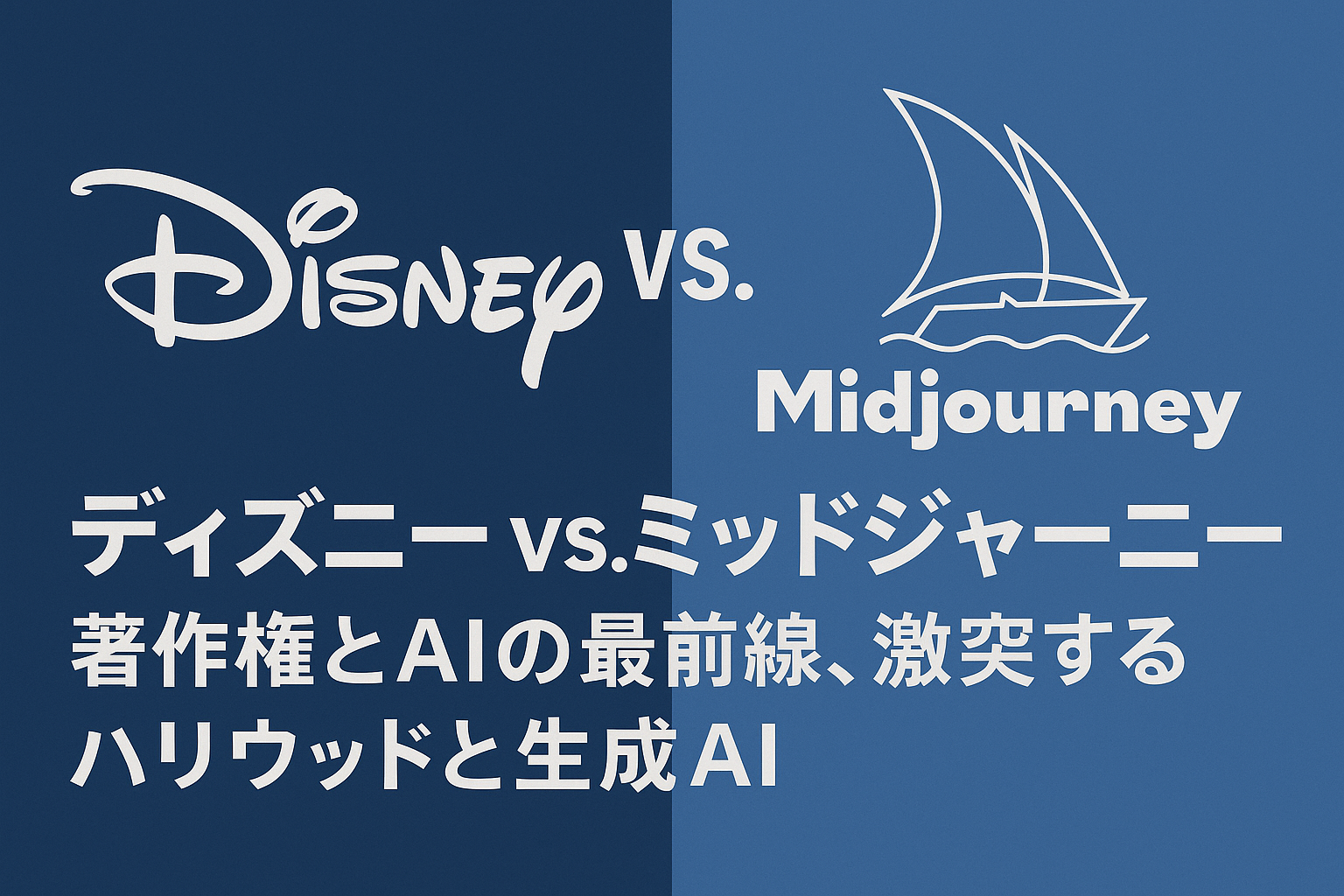Hollywood Takes Action
In June 2025, news broke that Disney and Comcast had filed a copyright infringement lawsuit against AI image-generation startup Midjourney. This case has drawn significant attention as a symbolic confrontation between the AI industry and the content industry.
The complaint cites specific examples of copyright infringement involving popular characters such as Star Wars, The Simpsons, and Shrek, marking a historic moment in the ongoing debate over the boundaries between AI and copyright law.
The Clash Between AI “Learning” and Copyright
Midjourney trains its AI models using vast amounts of image data collected from the internet. Whether such “data collection and training” is legal under copyright law has been a topic of global debate in recent years.
AI companies have defended their practices under the doctrine of “fair use,” while many creators argue that their content is being used without consent. Multiple lawsuits have already been filed on this basis.
What makes this particular case unique is that the generated images are not just “similar” to specific characters—they are alleged to “reconstruct essential copyrighted elements,” making it a direct infringement.
Do AI Models Have the Right to Learn?
How should copyright law balance the freedom for AI to learn with the exclusive rights of content creators? This is a critical issue that will shape the foundation of future AI societies.
At its core, machine learning is about imitation. But when that imitation extends to the “essential elements” of creative works, it can no longer be dismissed as mere training.
In an era where fake images and fabricated depictions of celebrities spread like wildfire, the possibility that AI might unintentionally breach copyright has become an unavoidable reality.
Is Midjourney a “Creator” or a “Copyist”?
This lawsuit also raises a philosophical question: What is the true nature of AI?
Is Midjourney merely a “tool” that generates images based on user prompts? Or is it a “creative agent” capable of reproducing specific styles and characters?
For copyright holders, the crucial point is this: If AI can recreate a character or style, it means the model has absorbed the “essence” of the original during training.
Disney as a Guardian of Culture
Disney has played a significant role in the history of copyright itself. It is famously associated with the U.S. copyright law extension often dubbed the “Mickey Mouse Protection Act,” which symbolized prolonged protection periods.
Now, Disney is once again redrawing the copyright “battle lines” for the AI era—this move is not just a business lawsuit, but also a cultural and ethical statement.
Looking Ahead: Settlement or System Reform?
The outcome of this case could have major implications for the future of AI development.
If the plaintiffs win, it may become necessary to pay royalties for AI model training. On the other hand, if fair use is upheld, it could pave the way for freer use of training data.
Either way, this lawsuit goes beyond a dispute between companies—it could become the starting point for establishing a framework for coexistence between AI and legal systems.
Is AI an Enemy of Culture, or an Ally of Evolution?
AI’s progress is unstoppable. That’s why it is essential to continue questioning how it is used—and who holds responsibility.
The Disney vs. Midjourney clash may go down as a landmark case, one that redefines the future of the content business and the very nature of our cultural landscape.

